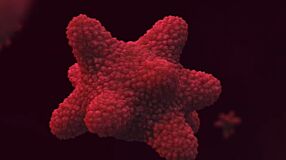Modeling Human Gastrointestinal Development and Disease Using Pluripotent Stem Cells
Organoids are three-dimensional (3D) cell cultures containing a self-renewing stem cell population which differentiates into multiple, organ-specific cell types demonstrating key features of the represented organ. Advancements in organoid culture, such as the co-culture of different tissue types, further increases their utility as models of the in vivo organ and provides researchers a convenient platform to complement existing 2D culture and animal models. In this webinar, Dr. James Wells discusses the generation of human intestinal organoids containing a functional enteric nervous system, the differentiation of gastric organoids, and the application of these systems to examine intestinal motility disorders and gastric infection with Helicobacter pylori.
Publish Date:
March 06, 2017
Request Pricing
Thank you for your interest in this product. Please provide us with your contact information and your local representative will contact you with a customized quote. Where appropriate, they can also assist you with a(n):
Estimated delivery time for your area
Product sample or exclusive offer
In-lab demonstration
By submitting this form, you are providing your consent to STEMCELL Technologies Canada Inc. and its subsidiaries and affiliates (“STEMCELL”) to collect and use your information, and send you newsletters and emails in accordance with our privacy policy. Please contact us with any questions that you may have. You can unsubscribe or change your email preferences at any time.






